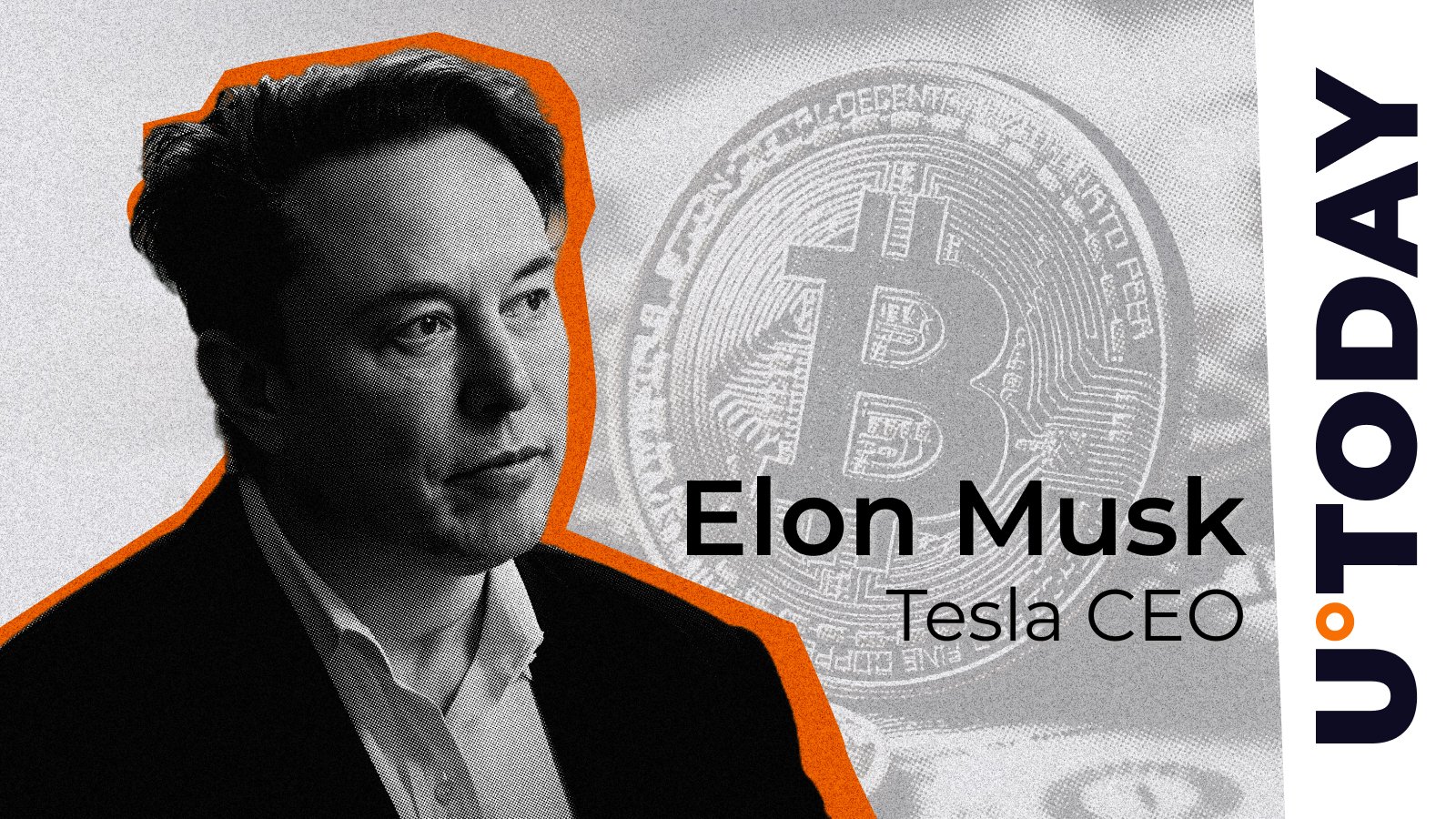The U.S. national debt surpasses $35 trillion, expected to hit $50 trillion by 2034. Analysts see Bitcoin as a hedge against inflation, predicting a potential rise to $70,000.

U.S. National Debt Surges Past $35 Trillion, Raising Economic Concerns
Elon Musk Warns of Bankruptcy Risk from Government Overspending
As the U.S. national debt continues to soar, reaching a record high of $35.27 trillion, concerns are mounting about the potential impact on the economy and the well-being of Americans.
The astronomical debt, which is more than the country's annual economic output, has prompted warnings from figures like Tesla and SpaceX CEO Elon Musk, who took to Twitter to express his担忧.
"At current rates of government spending, America is in the fast lane to bankruptcy. Government overspending is what causes inflation," Musk wrote in a tweet on July 29.
Musk's statement highlights the担忧 that excessive government spending can lead to a vicious cycle of inflation and economic decline, ultimately putting the country at risk of financial ruin.
The new figures, released by the U.S. Department of the Treasury, come amid rising inflation and concerns about the Federal Reserve's ability to contain price increases without triggering a recession.
The Consumer Price Index (CPI) rose 7.5% year-over-year in January, while the Personal Consumption Expenditures (PCE) index, the Fed's preferred inflation measure, remained at 2.5% for July, according to the Bureau of Economic Analysis.
While the PCE reading remained unchanged from June, it still exceeded the Fed's 2% target, signaling persistent inflationary pressures in the U.S. economy.
The Congressional Budget Office (CBO) projects that the U.S. national debt will continue to rise, reaching an alarming $50.4 trillion by 2034, which would be more than 122% of the country's gross domestic product (GDP).
Even though the CBO anticipates the U.S. GDP to grow only 1.8% per year from 2029 to 2034, the debt is expected to increase.
The debt is largely driven by government spending on social programs, such as Social Security and Medicare, as well as tax cuts and pandemic-related stimulus measures.
To finance this debt, the U.S. government sells Treasury bonds, which are purchased by central banks, foreign governments, and other institutions.
However, concerns arise about the sustainability of this debt and its potential impact on future generations, as it may limit the government's ability to respond to future crises or economic downturns.
The massive debt also raises questions about the country's economic strength and stability, which are crucial for attracting investment and ensuring the well-being of its citizens.
In response to the economic uncertainties, notable investors are adjusting their strategies.
For instance, billionaire investor Warren Buffett's Berkshire Hathaway sold nearly $1 billion worth of Bank of America shares, according to a recent SEC filing.
Over the past week, Buffett's firm sold almost 25 million shares, reducing its stake in the bank to 12.4%.
Some analysts speculate that Buffett might be shifting investments towards digital assets, such as cryptocurrencies, to protect against inflation and diversify Berkshire's portfolio.
With economic instability on the rise, cryptocurrencies like Bitcoin are becoming more attractive as a potential hedge against inflation and government debt.
After the PCE data was released on July 28, Bitcoin briefly rose to $59,000 on Friday evening before falling to $57,736 at the last check on Saturday morning.
Currently, Bitcoin is trading at $59,174, reflecting a 1% drop in the past 24 hours.
Despite recent price changes, Bitcoin is still seen as a promising alternative to traditional currencies, especially with concerns about inflation and government debt.
If the U.S. debt continues to snowball at the current rate, and considering the limited supply of Bitcoin, which makes it a scarcity asset, it could be an attractive option for investors seeking to safeguard their portfolios against inflation and economic turbulence.
With a limited supply of 21 million coins and decentralized nature, Bitcoin offers a unique proposition in the world of finance.
As an incorruptible digital currency, Bitcoin is not subject to the whims of central banks or government policies, making it an appealing choice for those seeking an apolitical and economically sound investment.
Moreover, Bitcoin's portability and divisibility make it convenient for a wide range of transactions, from large-scale purchases to everyday expenses.
As technology continues to advance and integrate with our daily lives, cryptocurrencies like Bitcoin are poised to play a increasingly significant role in the global economy.
With institutional interest growing and regulatory frameworks evolving, cryptocurrencies are likely to become more accessible and widely adopted in the years to come.
The above is the detailed content of Elon Musk Warns U.S. Overspending Could Lead to Bankruptcy, Raising Economic Concerns. For more information, please follow other related articles on the PHP Chinese website!
 RCO Finance (RCOF) Robos-Advisor Takes The Altcoin Sector By StormAug 22, 2024 pm 09:25 PM
RCO Finance (RCOF) Robos-Advisor Takes The Altcoin Sector By StormAug 22, 2024 pm 09:25 PMThe altcoin sector has started showing signs of rallying, forcing investors to flock to projects with great growth potential. Among the list of investor favorites
 Elon Musk Shares a Meme, Willy Woo Assumes He's Buying Bitcoin, BTC Crashes by More Than 18%Aug 05, 2024 pm 09:43 PM
Elon Musk Shares a Meme, Willy Woo Assumes He's Buying Bitcoin, BTC Crashes by More Than 18%Aug 05, 2024 pm 09:43 PMTech mogul and the world's richest entrepreneur Elon Musk has taken to his official account of the X social media platform to share a meme with the X community and crypto fans.
 Elon Musk Warns U.S. Overspending Could Lead to Bankruptcy, Raising Economic ConcernsAug 31, 2024 pm 09:58 PM
Elon Musk Warns U.S. Overspending Could Lead to Bankruptcy, Raising Economic ConcernsAug 31, 2024 pm 09:58 PMThe U.S. national debt surpasses $35 trillion, expected to hit $50 trillion by 2034. Analysts see Bitcoin as a hedge against inflation, predicting a potential rise to $70,000.
 Elon Musk Hints at the Return of Dogecoin Payments for Tesla Merch and StarlinkSep 04, 2024 am 12:47 AM
Elon Musk Hints at the Return of Dogecoin Payments for Tesla Merch and StarlinkSep 04, 2024 am 12:47 AMElon Musk recently responded to a tweet suggesting Dogecoin as a solution to frozen bank accounts for Starlink. This led to the speculation that Starlink
 Elon Musk's 'Department of Government Efficiency' Tweet Indirectly References Dogecoin, Sparks Community ReactionSep 08, 2024 am 03:28 AM
Elon Musk's 'Department of Government Efficiency' Tweet Indirectly References Dogecoin, Sparks Community ReactionSep 08, 2024 am 03:28 AMThe Tesla and SpaceX CEO posted a tweet that reads, "Department of Government Efficiency," which could be abbreviated for short as "DOGE."
 Elon Musk Announced His Full Support for Pavel Durov with Multiple Facts and Supported His Vision of Free SpeechAug 25, 2024 pm 03:20 PM
Elon Musk Announced His Full Support for Pavel Durov with Multiple Facts and Supported His Vision of Free SpeechAug 25, 2024 pm 03:20 PMToday, we reported that Telegram founder Pavel Durov was arrested by the authorities in France over his failure to prohibit the misuse of the Telegram
 MoonBag (MBAG): The Original Meme Coin Still Holding StrongSep 01, 2024 pm 06:24 PM
MoonBag (MBAG): The Original Meme Coin Still Holding StrongSep 01, 2024 pm 06:24 PMIn the transforming world of cryptocurrency, meme coins have become a unique and influential segment, capturing the imagination of investors and the broader public alike. Among these digital assets, Play Doge, Dogecoin, and MoonBag (MBAG) are making
 Elon Musk Predicts U.S. Bankruptcy, Reigniting Bitcoin's Appeal as a "Digital Gold"Aug 31, 2024 am 04:08 AM
Elon Musk Predicts U.S. Bankruptcy, Reigniting Bitcoin's Appeal as a "Digital Gold"Aug 31, 2024 am 04:08 AMTesla CEO Elon Musk has issued a stark warning about the future of the U.S. economy. He predicted a fast track to bankruptcy due to the government's escalating deficit.

Hot AI Tools

Undresser.AI Undress
AI-powered app for creating realistic nude photos

AI Clothes Remover
Online AI tool for removing clothes from photos.

Undress AI Tool
Undress images for free

Clothoff.io
AI clothes remover

AI Hentai Generator
Generate AI Hentai for free.

Hot Article

Hot Tools

PhpStorm Mac version
The latest (2018.2.1) professional PHP integrated development tool

Atom editor mac version download
The most popular open source editor

SublimeText3 Linux new version
SublimeText3 Linux latest version

ZendStudio 13.5.1 Mac
Powerful PHP integrated development environment

mPDF
mPDF is a PHP library that can generate PDF files from UTF-8 encoded HTML. The original author, Ian Back, wrote mPDF to output PDF files "on the fly" from his website and handle different languages. It is slower than original scripts like HTML2FPDF and produces larger files when using Unicode fonts, but supports CSS styles etc. and has a lot of enhancements. Supports almost all languages, including RTL (Arabic and Hebrew) and CJK (Chinese, Japanese and Korean). Supports nested block-level elements (such as P, DIV),






